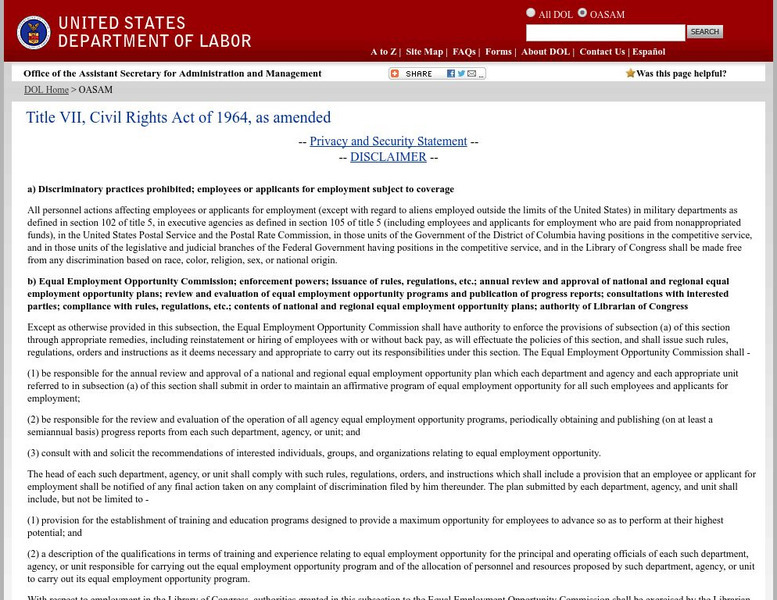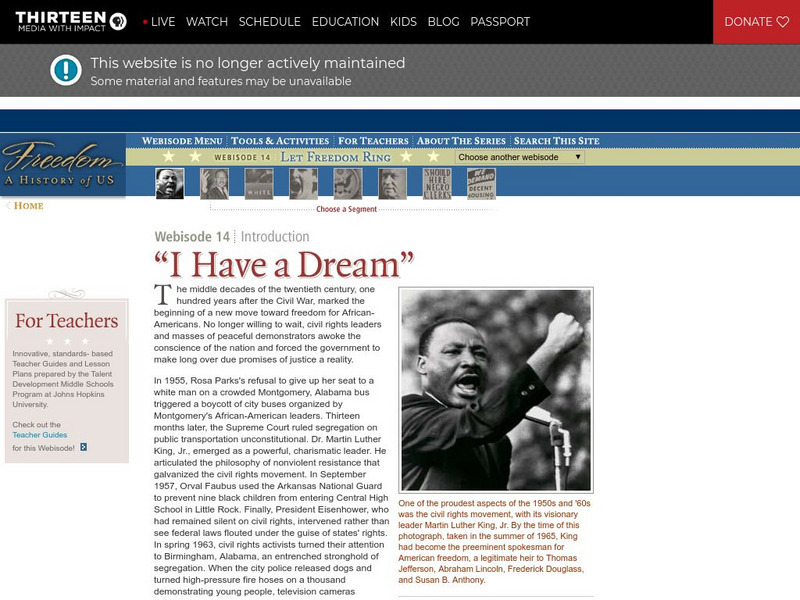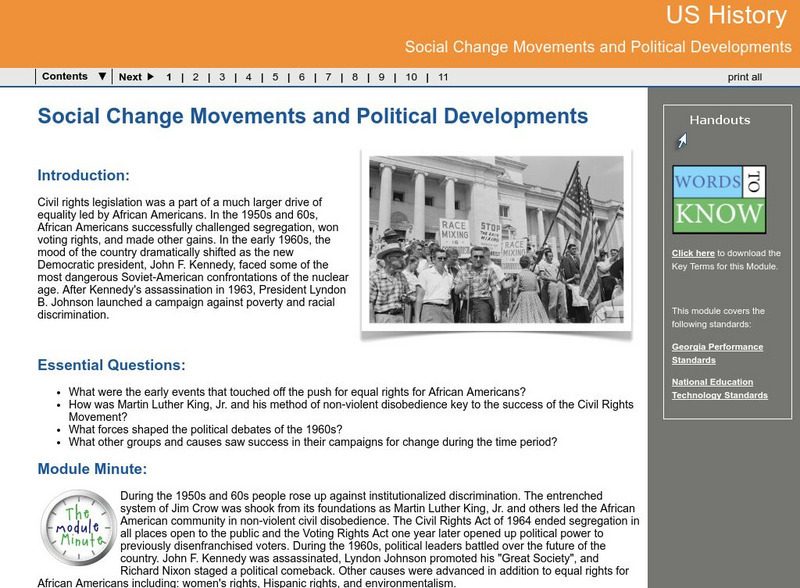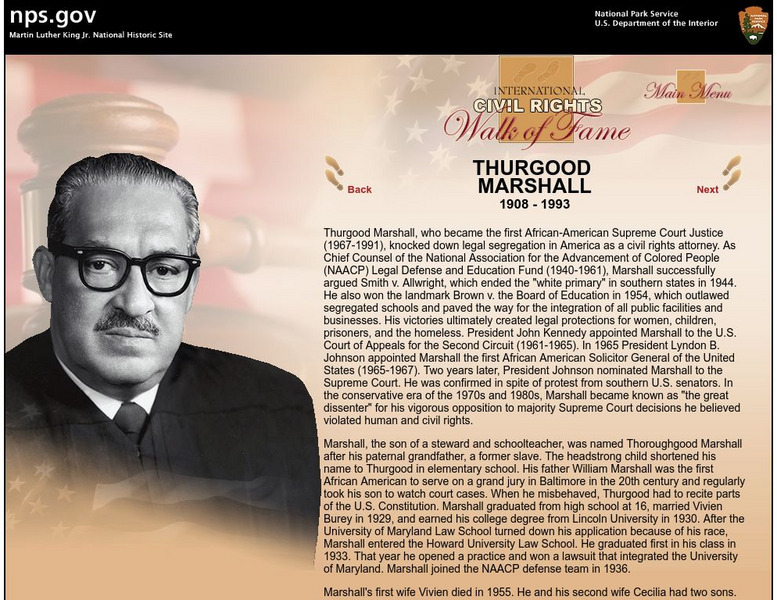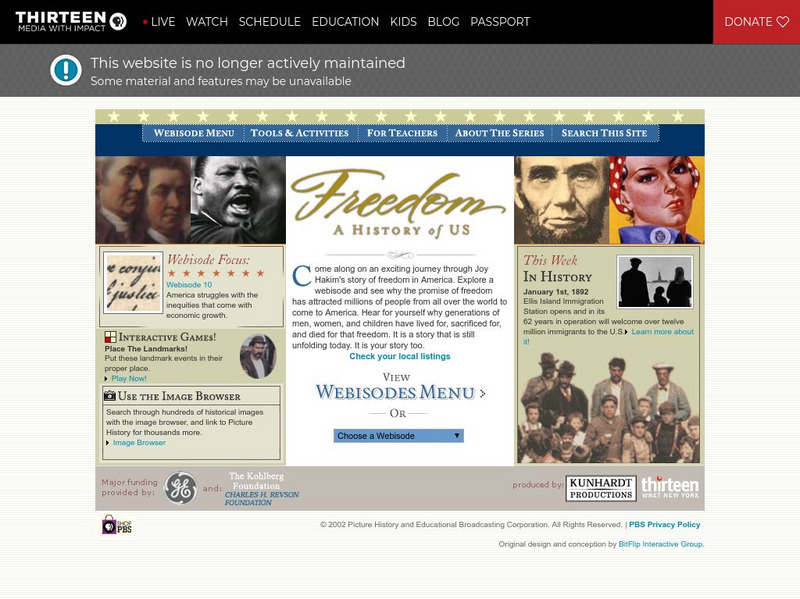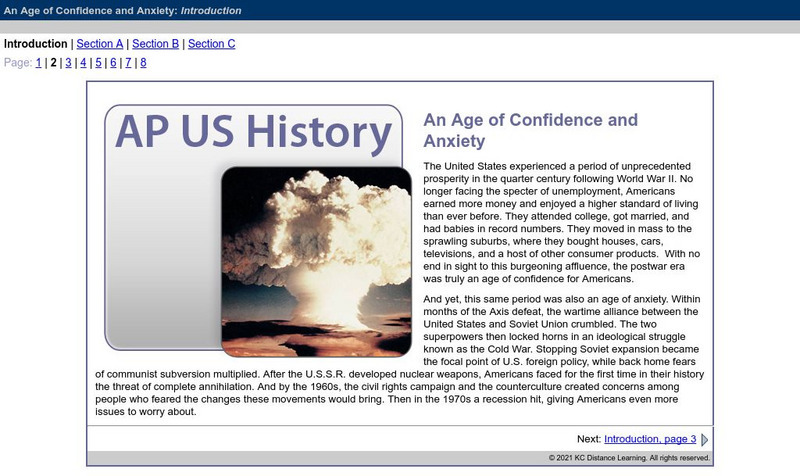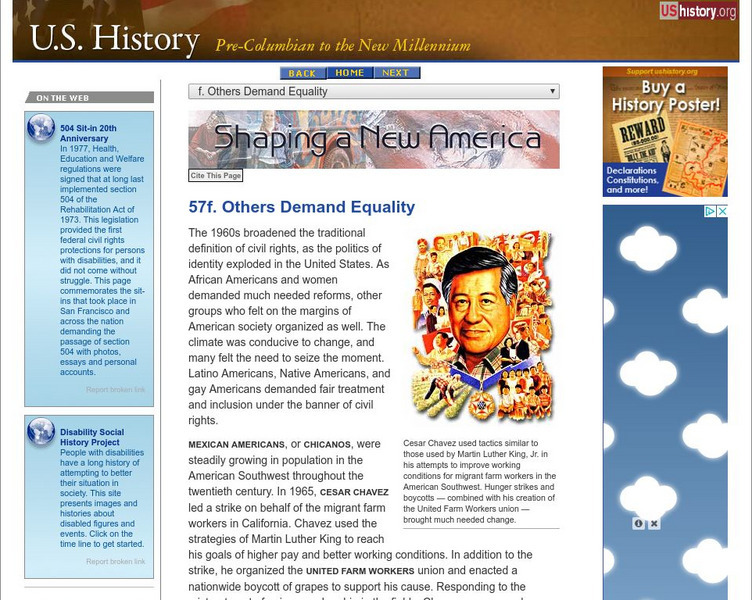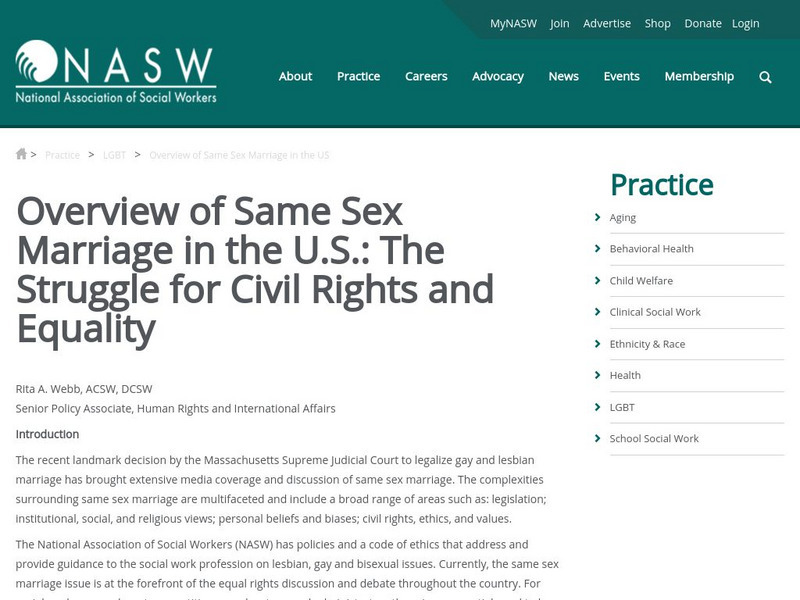Curated OER
National Park Service: International Civil Rights Walk of Fame: Andrew Young
A focused biography on the role Andrew Young has played in the Civil Rights Movement.
US Department of Labor
U.s. Department of Labor: Text of the Civil Rights Act of 1964
US Department of Labor provides this government copy of the Civil Rights Act of 1964. Thorough and complete, all the necessary information is provided.
Curated OER
National Park Service: International Civil Rights Walk of Fame: Maynard Jackson
This is a concise biography highlighting Maynard Jackson's role in the Civil Rights Movements.
Curated OER
National Park Service: International Civil Rights Walk of Fame: Nancy Wilson
Grammy Award winning Nancy Wilson, a civil rights activist, is the center of this brief biography.
Curated OER
National Park Service: International Civil Rights Walk of Fame: Rosa Parks
Rosa Parks' contributions to the Civil Rights Movement are highlighted in this brief biography.
Other
Powerful Days in Black and White
Powerful and shocking black and white photographs from the civil rights struggle.
Khan Academy
Khan Academy: Us History: 1945 1980: Sncc and Core
Read about the two civil rights groups that organized nonviolent protests during the 1950s and 1960s.
Khan Academy
Khan Academy: Us History: 1945 1980: Emmett Till
Read about the brutal murder of a fourteen-year-old boy that became a rallying point for the Civil Rights Movement.
PBS
Wnet: Thirteen: Freedom: A History of Us: Webisode 14: Let Freedom Ring
Series episode covers the civil rights movement and the struggle for equality in post-World War II America.
TED Talks
Ted: Ted Ed: Martin Luther King, Jr.: "I Have a Dream"
On August 28, 1963, Dr. Martin Luther King, Jr. delivered a speech to hundreds of thousands of Americans at what is known as the March on Washington. This now-famous speech was both an apex and catalyst for the Civil Rights Movement in...
Georgia Department of Education
Ga Virtual Learning: Us History Social Change Movements & Political Developments
Learning module on movements for social change and civil rights and the political developments surrounding them. Comprhensive multi-media materials and links to supplemental resources.
Digital History
Digital History: The Civil Rights Movement Moves North
Summers of the late 1960s was a time of widespread violence and rioting in the nation's major inner cities. What was previously thought of as a problem of the South had spread nation-wide and was now demanding immediate attention.
Khan Academy
Khan Academy: Us Government and Civics
An entire course on US government and civics - we don't seem to have any of it; many individual lessons to harvest. Should be cross-checked against embedded videos.
Curated OER
National Park Service: International Civil Rights Walk of Fame: Addie Wyatt
An intriguing biography on the contributions and experiences of Reverend Addie Wyatt during the Civil Rights and Women's Movements.
Curated OER
National Park Service: International Civil Rights Walk of Fame: Thurgood Marshall
This is an informative biography discussing the role Thurgood Marshall had in the Civil Rights Movement, particularly as a U.S. Supreme Court Justice.
PBS
Wnet: Thirteen: Freedom: A History of Us
Online home of the sixteen-part PBS series on American history, A History of US is a storehouse of information and resources to enrich any study of America. Includes an interactive timeline, an image browser, games, quizzes, first-person...
PBS
Pbs Learning Media: Martin Luther King Jr.: Civil Rights Leader Video
In the second half of the 20th century, racial tensions rose in the US as African Americans began to challenge unjust laws that supported discrimination and segregation. This movement found its leader in the patient and inspiring...
Department of Defense
Do Dea: Ap Us History: Unit 8: An Age of Confidence and Anxiety
This extensive learning module examines the United States' response to the global uncertainty and instability that followed World War II and the ways that marginalized groups challenged discrimination, and the counter-responses to their...
Other
Kodak: Powerful Days in White and Black
Stunning black and white photos documenting the civil rights struggle in the 1960s.
Independence Hall Association
U.s. History: Others Demand Equality
Many other groups learned how to push for their civil rights from African Americans' civil rights movement. Read about the Mexican Americans, Native Americans, and gays as they worked to achieve equal treatment under the law.
Alabama Learning Exchange
Alex: Out of the Night That Covers Me
Through the novel Out of the Night That Covers Me, students will explore the impact of racial segregation, family heritage, and the historical significance of pre-civil rights Alabama. This unit of study is recommended for students in...
Alabama Learning Exchange
Alex: America's Melting Pot
As part of the study of Civil Liberties, the students will do research on Civil Rights Supreme Court Cases and amendments that changed America. In groups, students will use various websites, books and newspaper articles to acquire...
Khan Academy
Khan Academy: Us History: 1980 Present: Continuity and Change in the Postwar Era
How much did the events of the tumultuous postwar era reshape American national identity? Kim discusses the extent to which developments like the Cold War, the Civil Rights Movement, Vietnam, and student protests of the 1960s changed...
National Association of Social Workers
Nasw: Overview of Same Sex Marriage in the u.s.
The struggle for civil rights and equality in the United States when it comes to legalization of same sex marriage is presented in a report by the National Association of Social Workers. Identify the ethics, domestic union and...

